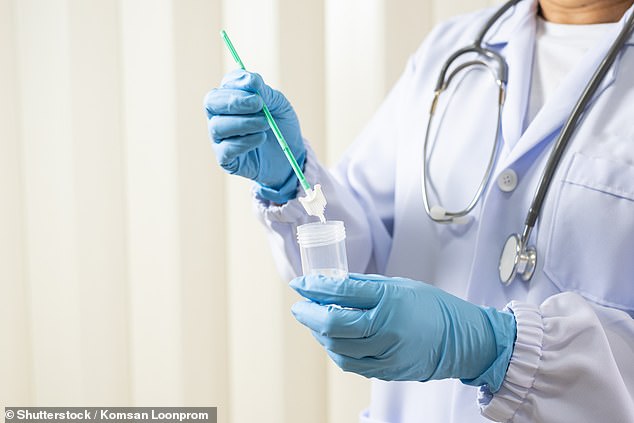Home Pap tests are set to be rolled out across the NHS after being found to substantially increase uptake of screening, potentially saving thousands of lives.
Self-testing kits are expected to “revolutionise” cervical cancer diagnosis after the largest study yet found they would reach a million more women every three years.
The test could be sent by mail or collected from a GP’s office, allowing women to collect samples in the comfort of their own homes.
Health officials said the “revolutionary” new method would likely save the lives of thousands of women who have put off or never gotten tested.
In the first trial of a national screening programme run by King’s College London, researchers found it could reach an extra 400,000 women in England each year.
Uptake of cervical cancer screening has been declining over the past two decades and almost a third of women in England have not had their most recent test.
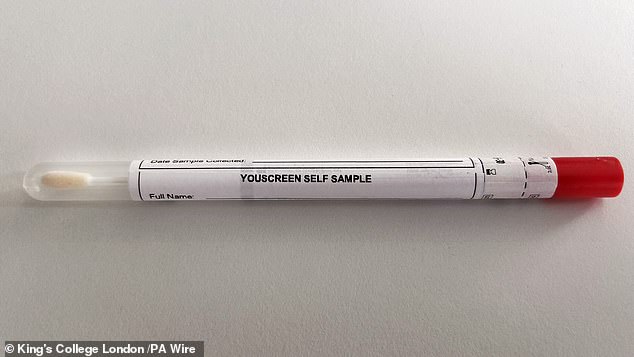
Self-testing kits like this one (pictured) are expected to “revolutionize” cervical cancer diagnosis
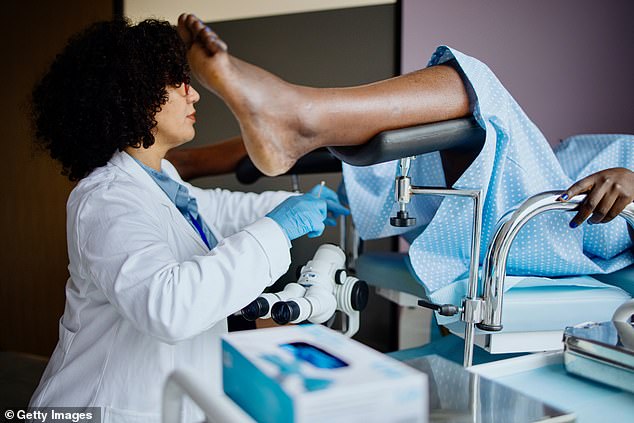
Many young women, in particular, do not respond to invitations for fear that the test will cause pain or embarrassment.
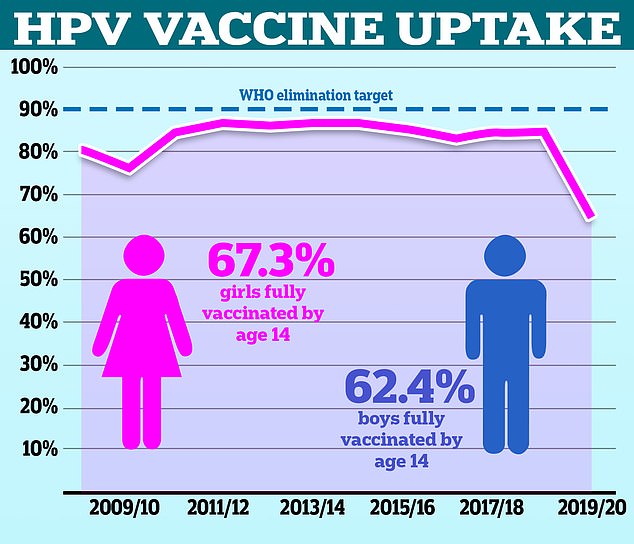
Only 67.2 per cent of girls were fully vaccinated in 2021/22, down from a peak of 86.7 per cent in 2013/14. Around 62.4 per cent of boys, who have been offered the vaccine on the NHS since 2019, were vaccinated in the most recent school year, NHS data shows.
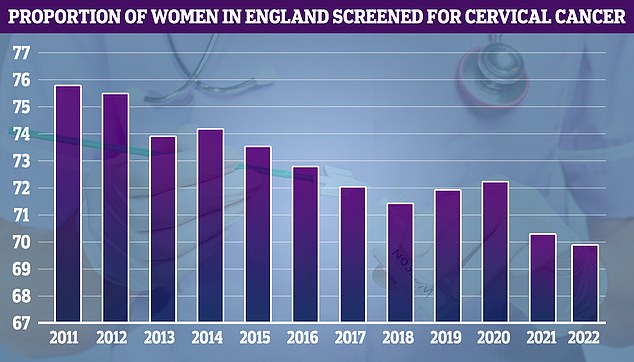
NHS cervical cancer screening data, dating back to 2011, shows uptake was at its highest that year (75.7 per cent) and has declined over time.
Experts said it could help “make cervical cancer a rare disease in the UK”.
Uptake of cervical cancer screening has been declining over the past two decades and almost a third of women in England have not had their most recent test.
Many young women, in particular, do not respond to invitations, fearing that the test will cause pain, embarrassment and a lack of suitable appointments.
In the new trial, more than 27,000 YouScreen kits were delivered from 133 GP practices in north and east London to women aged 25 to 64 who were due to be screened, either in the practice or by post.
Easy to use, the swab detects human papillomavirus (HPV), a group of viruses responsible for almost all cases of cervical cancer.
Women used a vaginal swab, such as a long cotton swab, to collect their sample at home or at their primary care doctor’s office.
Of the 10,849 women who were offered a kit when they spoke to their GP about something else, 85 per cent accepted and 6,061 (56 per cent) returned a sample themselves.
Those who took the test at home were able to send their kit to a laboratory for free.
Half (52 percent) of all those who returned a sample themselves were at least two years overdue for screening, including women who had never been tested before.
The researchers said systematic deployment of the kits in England could increase screening coverage from 70 to 77 percent.
Lead researcher Dr Anita Lim, from King’s College London, said: ‘Self-sampling has been hailed as a game-changer.
‘It is critical that we make cervical cancer screening easier… to help protect more people from this highly preventable cancer.
‘The YouScreen trial has given us the evidence we need to show that self-sampling helps more women get tested.’
The NHS encourages women to get screened every three to five years, depending on their age, or more frequently if HPV is detected.
Evidence suggests that self-sampling tests are equally good at detecting precancerous cells as standard cervical screening performed by a doctor or nurse.
The Department of Health and Social Care said last night: “This trial shows an innovative new way of detecting HPV, potentially saving the lives of thousands of people.”
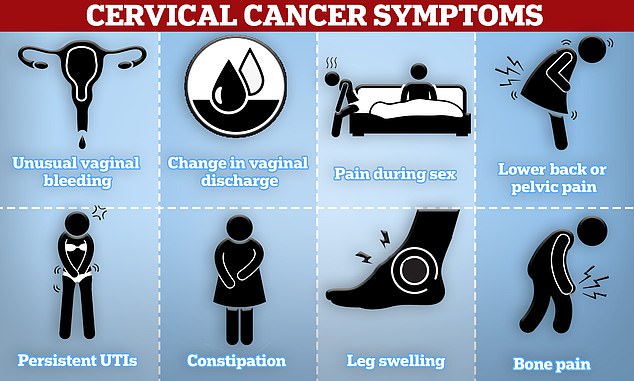
Cervical cancer symptoms to look out for include unusual vaginal bleeding, pain during sex, and lower back or pelvic pain.
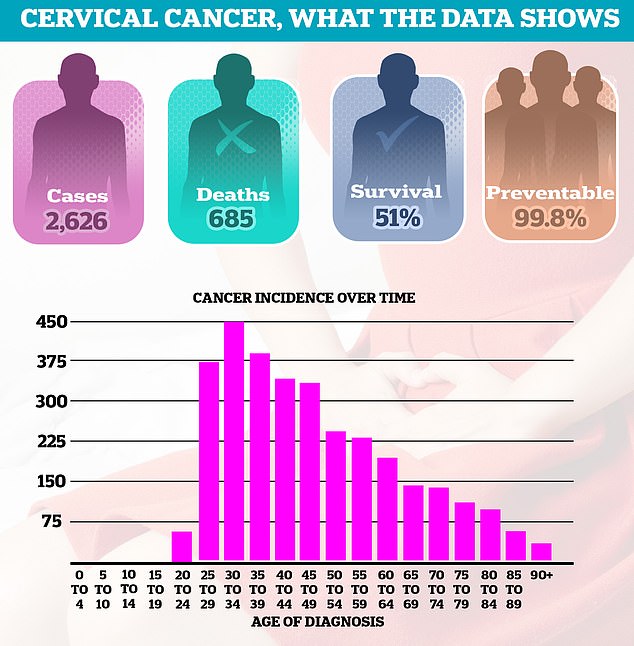
Every year, thousands of women are still diagnosed with cervical cancer, resulting in 685 deaths a year in England. Around half of women (51 per cent) survive 10 years or more after diagnosis. Diagnoses are most common among women in their thirties.
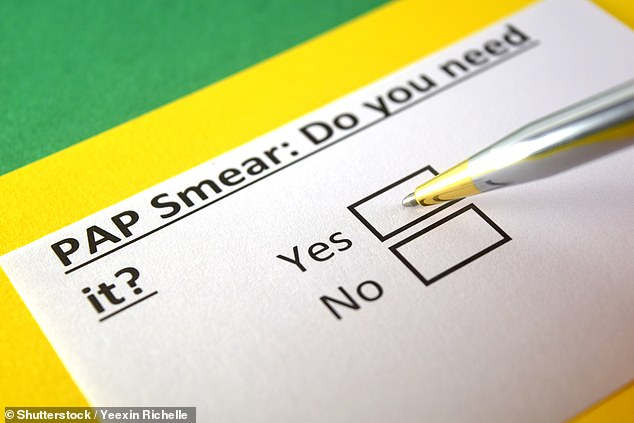
Fifty-two percent of all those who returned a sample themselves were at least two years overdue for screening, including women who had never been screened before.
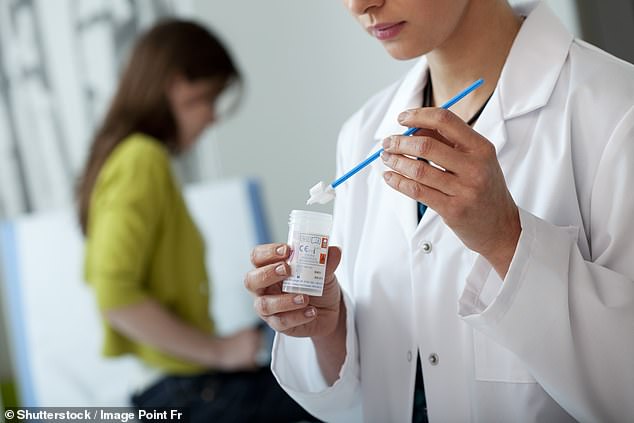
The NHS encourages women to get screened every three to five years, depending on their age, or more frequently if HPV is detected.
There are around 3,300 new cases of cervical cancer (and 850 deaths) each year in the UK.
Last night Professor Peter Sasieni, head of the research group at King’s College London, said: ‘We are on track to make cervical cancer a rare disease in the UK.
‘YouScreen has shown that this simple test is popular with both women and GPs and could increase screening uptake by more than one million within three years.’
Other countries such as the Netherlands, Australia, Denmark and Sweden have already introduced self-testing kits, according to research published in the journal eClinicalMedicine.
Deborah Tomalin, director of NHS screening and vaccinations, said: “The NHS will now work with the UK’s National Screening Committee to consider the feasibility of rolling this out more widely across England.”


